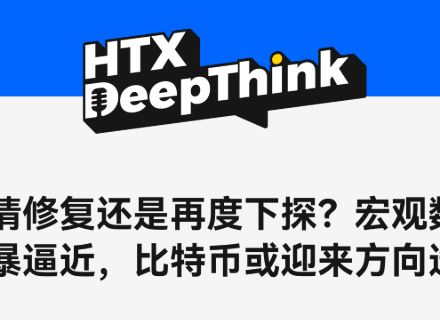Blockchain Makes Economic Data Immutable, Shifting Finance’s Trust Model
- U.S. DOC partners with Chainlink to publish key economic data on-chain via BEA, enhancing blockchain transparency and DeFi utility. - Data includes Real GDP, PCE Index, and quarterly updates, accessible across 10 ecosystems like Ethereum and Arbitrum. - Initiative aligns with Trump’s blockchain leadership goals and HR 1664, boosting LINK’s price and institutional trust through ISO/SOC 2 certifications. - Critics highlight risks of data immutability and oracle dependency, but proponents stress tamper-proo
The U.S. Department of Commerce (DOC) has partnered with Chainlink , a leading decentralized oracle network, to bring key macroeconomic data on-chain, a move expected to enhance transparency and expand the utility of blockchain markets. This initiative, announced in late August 2025, involves the Bureau of Economic Analysis (BEA), which will now publish critical U.S. economic indicators such as Real GDP, PCE Price Index, and Real Final Sales to Private Domestic Purchasers directly onto blockchain networks. The data, available in both absolute and percentage change formats, is updated monthly or quarterly depending on the metric, and is now accessible across 10 blockchain ecosystems, including Arbitrum, Avalanche , Ethereum , and ZKsync .
The collaboration aims to unlock a range of innovative use cases for blockchain markets, from enabling automated trading strategies and real-time prediction markets to enhancing DeFi protocol risk management based on macroeconomic conditions. These data feeds also support the development of inflation-linked products and perpetual futures markets, offering a programmable layer for DeFi innovation. According to Chainlink, the move aligns with its role as a foundational oracle infrastructure supporting Web3 and institutional users in accessing trusted, real-world data for secure on-chain applications.
The data is being made available through Chainlink Data Feeds, a secure infrastructure that has already facilitated trillions of dollars in transaction value across Web3. These feeds have achieved enterprise-grade compliance certifications, including ISO 27001 and SOC 2 Type 1, which provide additional confidence for financial institutions . The partnership is also part of a broader effort to modernize the U.S. government’s digital infrastructure. In July, the White House highlighted Chainlink as critical infrastructure for stablecoins and tokenized funds in its report on digital asset markets, underscoring a growing recognition of blockchain’s role in financial systems.
From a policy standpoint, the initiative reflects the Trump administration’s broader vision of positioning the U.S. as a global blockchain leader. Howard Lutnick, U.S. Secretary of Commerce and a crypto industry advocate, has emphasized the goal of making economic data “immutable and globally accessible” through blockchain. The move is also aligned with recent legislative efforts, such as the Deploying American Blockchains Act of 2025 (HR 1664), which mandates the U.S. Secretary of Commerce to lead national blockchain deployment and adoption strategies. This legislative and regulatory alignment has led to increased collaboration between Chainlink and U.S. regulators, including the Securities and Exchange Commission (SEC) and Senate Banking Committee Chair Tim Scott.
Market reactions have been positive, with the price of Chainlink’s native token, LINK, showing signs of a potential breakout. In the week following the announcement, LINK traded at $25.33, with a 4.07% increase in 24 hours and a 76.29% jump in trading volume. Analysts note that the strong demand could signal investor confidence in the token’s long-term prospects, particularly as the on-chain macroeconomic data expands the use cases for DeFi and tokenized assets. Price analysis suggests a key resistance level at $28, with a potential target of $30–$35 if the price sustains above that threshold.
The initiative has also sparked broader industry discussion around the role of oracles in connecting traditional financial data with decentralized systems. Chainlink’s role in this partnership is not unique—Pyth, another oracle provider, is also distributing GDP data for the U.S. government. Together, these providers act as trusted middleware, ensuring data integrity through cryptographic proofs and decentralized validation. The integration of real-time economic data into smart contracts is seen as a significant step toward programmable finance, where financial instruments can respond dynamically to macroeconomic trends.
While the initiative is praised for its innovation and transparency, it also presents challenges. Critics note that the immutability of blockchain could lock in errors if the BEA’s initial data is inaccurate. Additionally, the reliance on a small number of oracle providers creates potential bottlenecks or points of failure. However, proponents argue that the benefits of verifiable, tamper-proof data outweigh these risks, particularly in an era where trust in institutions is often questioned. The U.S. Department of Commerce has emphasized that the goal is not just technological advancement but also public accountability, enabling citizens and institutions to access and verify economic data without intermediaries.

Disclaimer: The content of this article solely reflects the author's opinion and does not represent the platform in any capacity. This article is not intended to serve as a reference for making investment decisions.
You may also like
Ethereum Staking Weekly Report December 1, 2025
🌟🌟Core Data on ETH Staking🌟🌟 1️⃣ Ebunker ETH staking yield: 3.27% 2️⃣ stETH...

The Blood and Tears Files of Crypto Veterans: Collapses, Hacks, and Insider Schemes—No One Can Escape
The article describes the loss experiences of several cryptocurrency investors, including exchange exits, failed insider information, hacker attacks, contract liquidations, and scams by acquaintances. It shares their lessons learned and investment strategies. Summary generated by Mars AI This summary was produced by the Mars AI model, and the accuracy and completeness of its generated content are still in the process of iterative improvement.

Mars Morning News | Federal Reserve officials to advance stablecoin regulatory framework; US SEC Chairman to deliver a speech at the New York Stock Exchange tonight
Federal Reserve officials plan to advance the formulation of stablecoin regulatory rules. The SEC Chair will deliver a speech on the future vision of capital markets. Grayscale will launch the first Chainlink spot ETF. A Coinbase executive has been sued by shareholders for alleged insider trading. The cryptocurrency market fear index has dropped to 23. Summary generated by Mars AI This summary was generated by the Mars AI model, and the accuracy and completeness of its content are still in the process of iterative updates.

OECD's latest forecast: The global interest rate cut cycle will end in 2026!
According to the latest forecast from the OECD, major central banks such as the Federal Reserve and the European Central Bank may have few "bullets" left under the dual pressures of high debt and inflation.